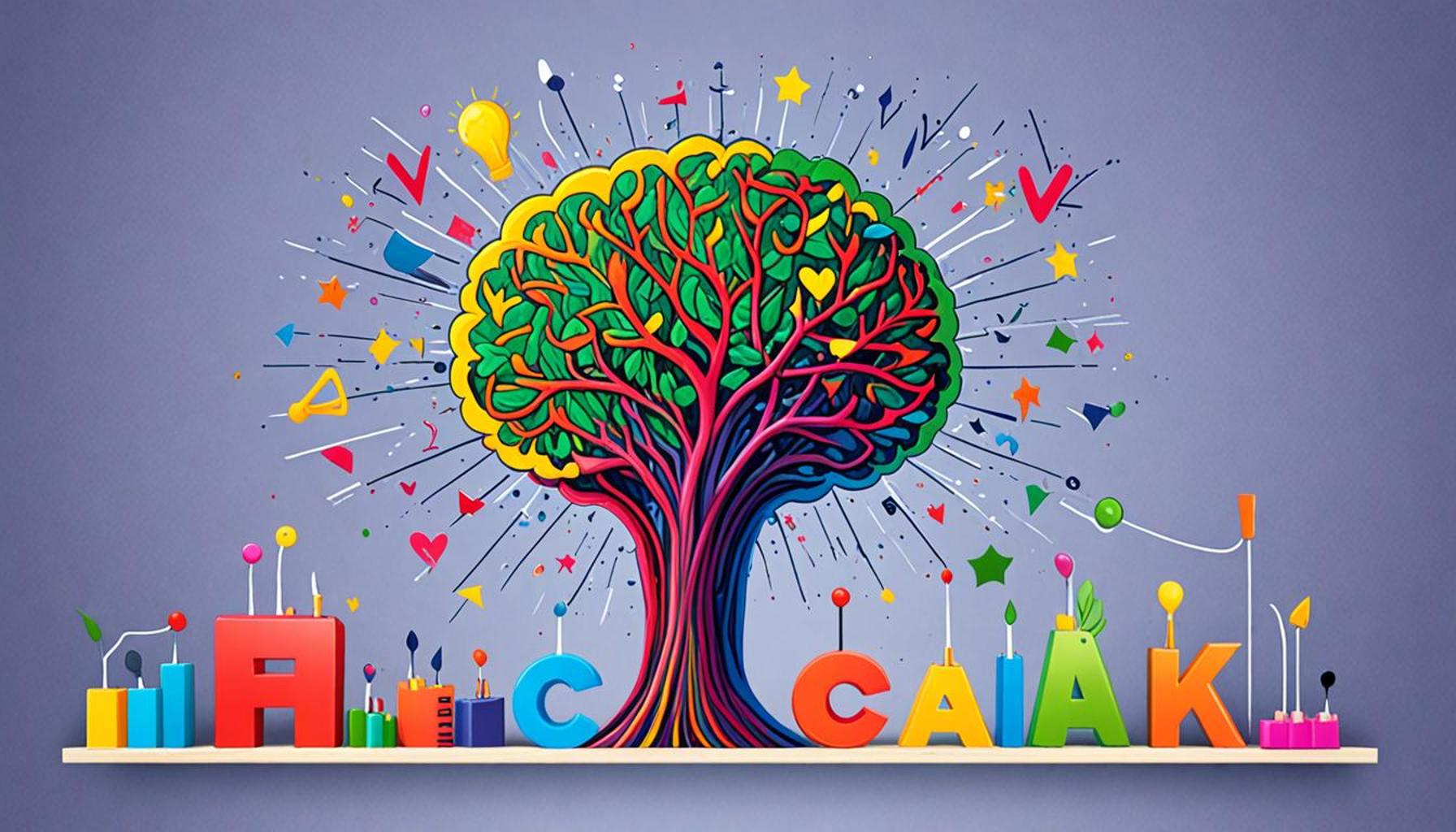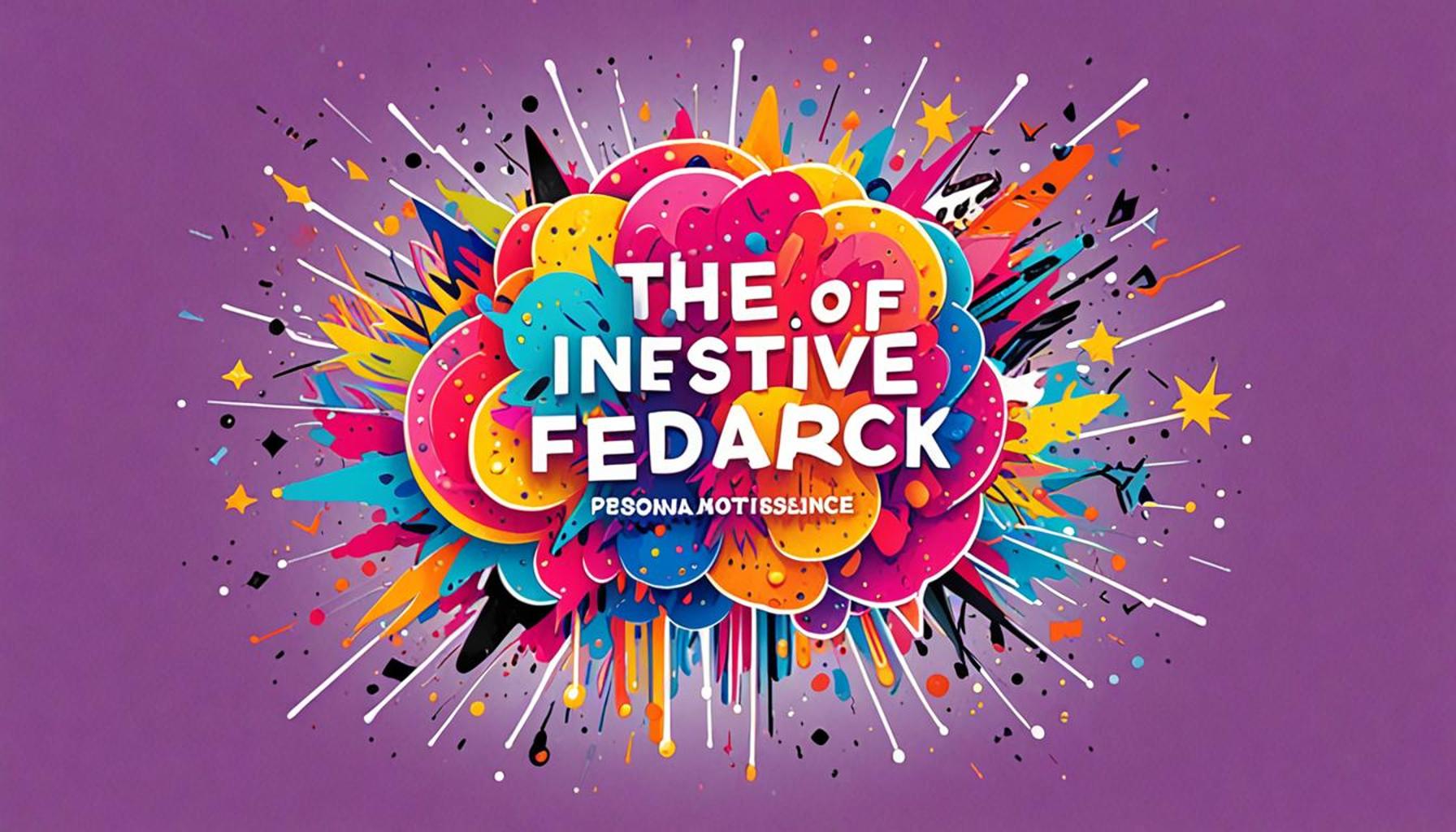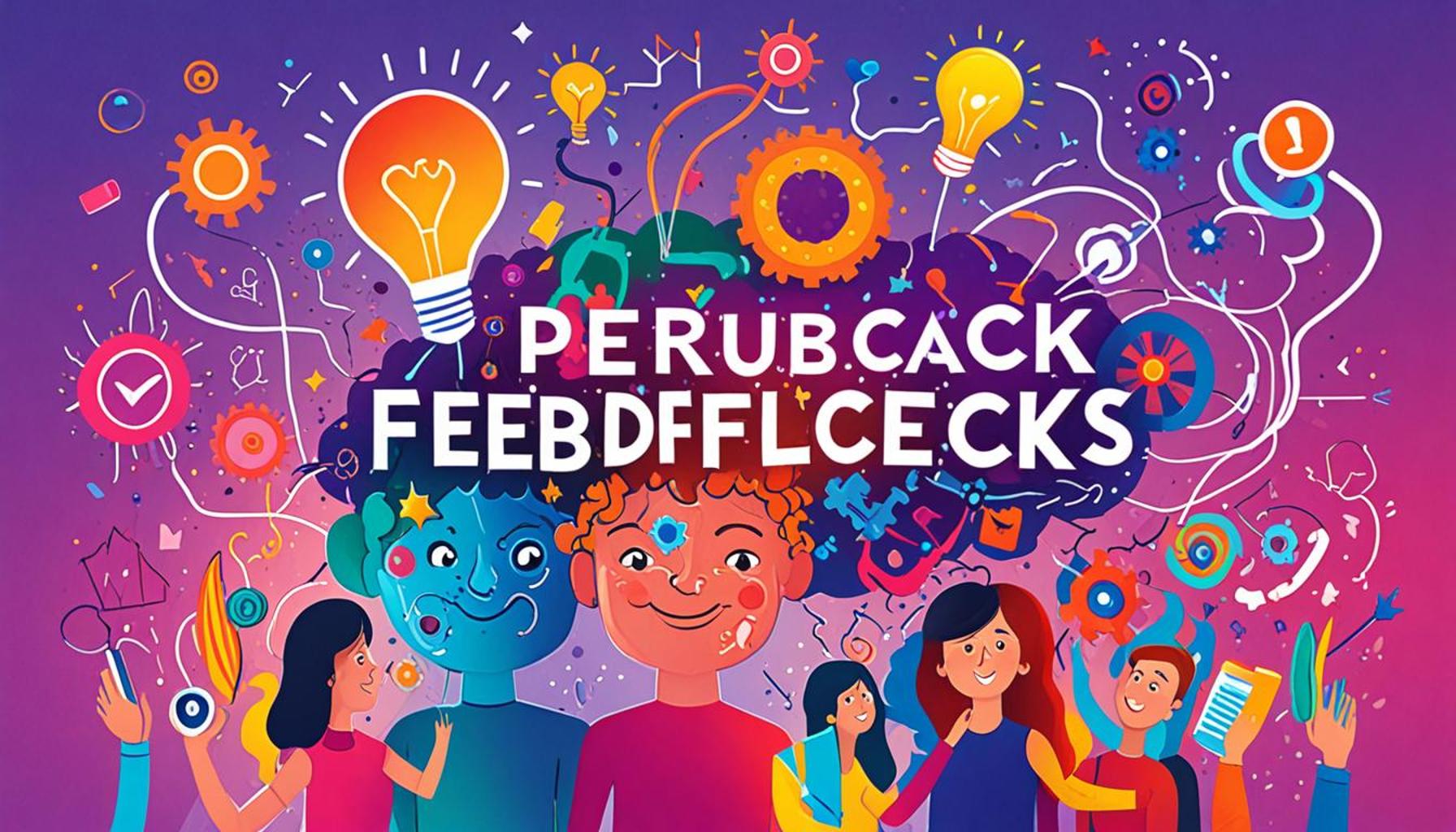The importance of constructive feedback in building a growth mindset

The Role of Constructive Feedback in Personal and Professional Growth
At its core, constructive feedback is a powerful catalyst for both personal and professional development. It is not merely about pointing out flaws; rather, it is about providing actionable insights that empower individuals to excel. By developing a growth mindset, individuals can view feedback as an opportunity for self-improvement rather than a source of discouragement. This shift in perspective can have profound implications, especially in competitive environments like Nigeria.
Promotes Learning and Improvement
One of the primary benefits of constructive feedback is that it promotes learning. Feedback helps identify specific areas where one can improve, guiding individuals to work towards their goals. For example, a student in a Nigerian university who receives targeted suggestions on a research paper is more likely to perform better in subsequent assignments because they understand where they can enhance their skills. Similarly, in the workplace, an employee given detailed feedback on their project management style can adopt new strategies that improve team dynamics and project outcomes.
Encourages Resilience Through Criticism
Another crucial aspect of constructive feedback is its ability to encourage resilience. The process of receiving and acting upon criticism cultivates a sense of endurance and a thicker skin. In a country like Nigeria, where job competition is fierce, individuals who learn to handle feedback constructively can navigate professional setbacks more effectively. For instance, a young entrepreneur who faces criticism about their business strategy can utilize that feedback to adapt and innovate, leading to long-term success instead of allowing self-doubt to deter them.
Increases Self-Awareness and Personal Growth
Feedback is also a critical tool for increasing self-awareness. It provides insights into our abilities and behaviors, encouraging personal reflection and growth. For example, in a culturally diverse workplace in Lagos, understanding how one’s approach to teamwork affects colleagues can foster a more harmonious work environment. By embracing feedback, employees and leaders alike can refine their interpersonal skills, enhancing collaboration and productivity.
Despite these benefits, many individuals may perceive feedback as criticism rather than a developmental tool. Changing this mindset requires a cultural shift where feedback is seen as a valuable resource for personal and organizational growth. In Nigeria, fostering this perspective can significantly impact educational institutions and corporate environments, where creating supportive networks that value growth can lead to more innovative and resilient communities.

In conclusion, the power of constructive feedback lies in its ability to help individuals transform their challenges into stepping stones for success. By viewing feedback through the lens of a growth mindset, we can not only enhance our skills but also nurture a culture of continuous improvement that benefits everyone involved.
SEE ALSO: Click here to read another article
Enhancing Skills Through Targeted Insights
Constructive feedback serves as a pivotal mechanism for enhancing skills, particularly in today’s competitive landscape. In Nigeria, a nation brimming with potential, the value of receiving and applying feedback cannot be overstated. When individuals seek out or accept constructive criticism, they position themselves to identify gaps in their knowledge and performance, igniting a desire for continuous improvement.
For instance, a budding software developer in Abuja who receives detailed feedback on their coding from a seasoned mentor is likely to build their proficiency at a faster rate than someone who lacks such guidance. The mentor’s insights not only help the developer understand their weaknesses but also provide avenues for mastering new technologies and coding languages. This type of input leads to a clear path for personal and professional development.
Building Confidence and Encouraging Experimentation
Another critical advantage of constructive feedback is its ability to build confidence among individuals. When feedback is delivered in a supportive manner, it encourages individuals to take risks and experiment with new approaches, knowing they have a safety net in the form of constructive insights. For example, a young artist in Enugu might experiment with different styles and techniques, armed with feedback from peers and instructors who help fine-tune their talent. This kind of risk-taking is essential for creative growth and innovation.
Creating a Feedback Culture
In order to fully harness the potential of constructive feedback, organizations and educational institutions must actively cultivate a feedback culture. This means encouraging regular dialogue, setting up feedback loops, and normalizing discussions around performance. A Nigerian corporation committed to employee development might hold quarterly feedback sessions where employees can openly discuss their goals and the areas where they seek assistance. Such initiatives not only foster a sense of community but also reinforce the idea that feedback is a vital part of growth.
- Encourages Open Communication: Establishing channels for honest conversations opens the door for valuable insights and collaborative growth.
- Reduces Fear of Failure: Creating a non-judgmental atmosphere helps individuals embrace challenges without fearing negative repercussions.
- Stimulates Innovation: Regular feedback exchanges promote creative thinking, leading to innovative solutions and ideas.
Furthermore, by positioning feedback as a cornerstone of success, we pave the way for a more evolved workforce and student body that is not just competent, but also resilient and adaptable. The emphasis must be on viewing feedback as a tool for enrichment, rather than criticism. By embracing constructive dialogues, we arm ourselves with the ability to leap over hurdles and maximize our potential, ultimately contributing to a more prosperous Nigeria.
The Importance of Constructive Feedback in Building a Growth Mindset
Constructive feedback serves as a cornerstone for fostering a growth mindset, enabling individuals to embrace challenges and learn from failures. By providing targeted, actionable insights, feedback helps individuals identify specific areas for improvement. This kind of guidance is crucial because it allows people to focus on developing their skills rather than feeling discouraged. Furthermore, constructive feedback encourages self-reflection. When individuals receive thoughtful evaluations, they can take a step back to understand their thought processes and behaviors. This reflection is vital in altering one’s approach toward learning, motivating them to persist through difficulties. Additionally, the culture within teams and organizations plays a pivotal role in how feedback is perceived. Establishing a safe environment where constructive criticism is normalized can significantly enhance collaboration and innovation. When team members feel secure in sharing and receiving feedback, it diminishes fear of failure and promotes a continuous cycle of improvement. Moreover, constructive feedback can reinforce the importance of effort over innate ability. By highlighting the effort put into tasks rather than just the end results, feedback helps cultivate resilience and a stronger work ethic. This paradigm shift encourages individuals to see challenges as opportunities for growth rather than obstacles.As we explore further the specific advantages of constructive feedback, let’s take a look at a comprehensive table that elaborates on its benefits in fostering a growth mindset.
| Category 1 | Category 2 |
|---|---|
| Self-Improvement | Promotes personal growth through targeted feedback. |
| Enhanced Collaboration | Fosters teamwork and open communication within groups. |
| Increased Resilience | Encourages persistence through challenges rather than avoiding them. |
| Effective Learning | Supports a deeper understanding by guiding focus on areas needing improvement. |
The integration of constructive feedback into daily practices not only builds individual resilience but also shapes a culture that values growth and learning. This ongoing process can create long-lasting benefits both personally and professionally, enhancing overall success and fulfillment.
CHECK OUT: Click here to explore more
Fostering Resilience and Adaptability in the Face of Challenges
In an ever-evolving world, the ability to be resilient and adaptable is paramount. Constructive feedback acts as a catalyst for developing these essential traits, empowering individuals to navigate challenges more effectively. In Nigeria, where both the educational and professional landscapes are rapidly changing, embracing feedback can be the differentiating factor between stagnation and growth.
Take, for instance, the experience of entrepreneurs in Lagos who are launching startups in tech and e-commerce sectors. Many of these entrepreneurs encounter numerous obstacles, from securing funding to competing with established businesses. By actively seeking and applying constructive feedback from investors, mentors, and peers, they can refine their business strategies and overcome hurdles. Feedback serves not only as a tool for improvement but also as a source of motivation, reinforcing their commitment to their vision. Understanding that setbacks are part of the journey and that constructive criticism can offer valuable insights to pivot or refine their approaches fosters a mindset that is both growth-oriented and resilient.
Feedback as a Means of Personal Reflection
Another significant aspect of constructive feedback is its role in encouraging personal reflection. When individuals receive feedback, they are prompted to assess their own actions and decisions critically. This introspection is crucial for developing a growth mindset, as it helps individuals understand their thought processes and identify areas for improvement. For example, a student in Kano who receives feedback on their academic performance from teachers not only learns about their strengths and weaknesses but also reflects on their study habits and time management skills.
As students learn to embrace constructive feedback as an opportunity for self-assessment, they begin to take ownership of their learning processes. This ownership creates a culture of self-directed learning, where individuals are more likely to set goals, seek resources, and pursue knowledge outside the classroom.
Encouraging Peer-to-Peer Learning
Constructive feedback does not solely come from authority figures; the importance of peer-to-peer learning cannot be overlooked. In collaborative environments, peers can offer unique perspectives that may highlight different aspects of performance. For instance, a group of university students collaborating on a project may provide each other with feedback that enhances not only the outcome of their task but also their interpersonal skills.
- Strengthens Collaboration: Encouraging feedback among peers cultivates teamwork and fosters a sense of shared aspiration for mutual success.
- Expands Perspectives: Learning from peers introduces diverse viewpoints that can ignite creativity and innovation within a group.
- Builds Empathy: Providing feedback sensitively nurtures an understanding of others’ challenges, promoting a culture of support and encouragement.
The ripple effect of constructive feedback, whether in educational institutions or professional settings, nurtures a collaborative spirit that can elevate entire teams or communities. As such, fostering an environment where constructive feedback is valued not only enriches individual growth but also contributes to the collective progress of society.
SEE ALSO: Click here to read another article
Conclusion: Embracing Constructive Feedback for Continuous Growth
In summary, the significance of constructive feedback in cultivating a growth mindset cannot be overstated. This vital tool not only enhances individual learning and personal development but also fosters a culture of resilience and adaptability within communities. In a dynamic country like Nigeria, where socioeconomic factors are rapidly shifting, the ability to embrace feedback stands as a pillar of progress amidst challenges. Turning feedback into actionable insights empowers individuals to navigate setbacks effectively, transforming obstacles into opportunities for growth.
Moreover, the importance of peer-to-peer learning highlights how feedback from colleagues, classmates, and even friends can yield valuable perspectives that fuel creativity and innovation. As Nigerians increasingly engage in collaborative environments, fostering a robust feedback culture becomes essential for strengthening teamwork and building empathy within diverse communities.
Ultimately, as individuals and organizations continue to prioritize a mindset centered around constructive feedback, they are better positioned to thrive in an ever-changing landscape. Whether in classrooms, workplaces, or local networks, cultivating an atmosphere of open communication and reflective practices will empower a generation of Nigerians to transform their challenges into pathways for personal and collective advancement. Embracing constructive feedback is not just about enhancing performance—it is about nurturing a resilient society poised for continuous growth and improvement. As we move forward, let us commit to viewing feedback as a gift, paving the way for innovation, collaboration, and lifelong learning.



